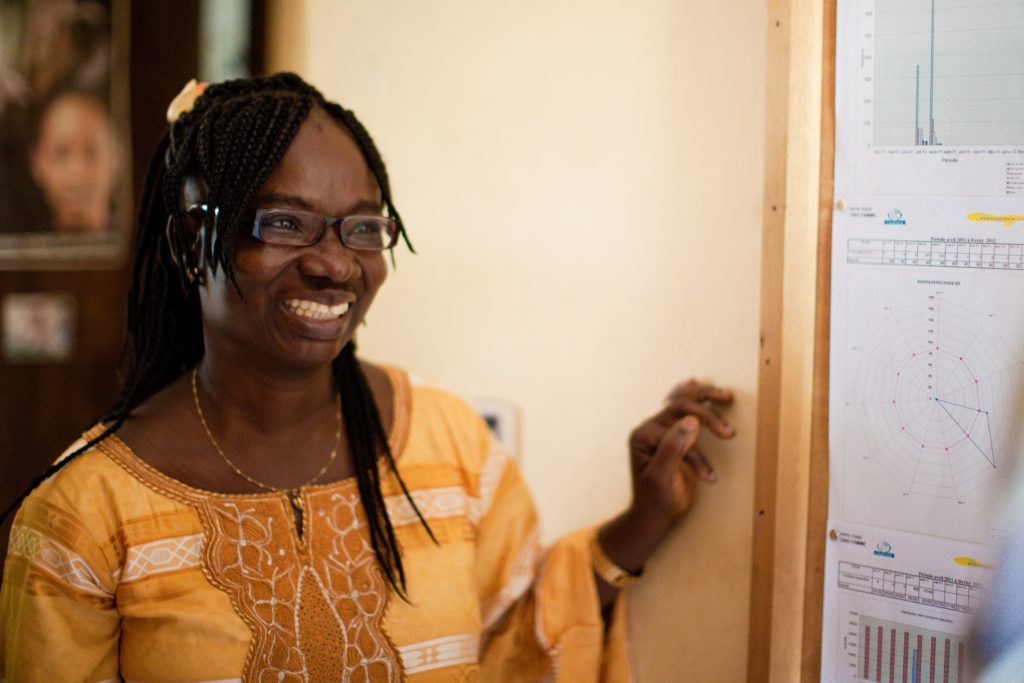Building Capacity for National Public Health Institutes
Building Capacity for National Public Health Institutes

Overview
With funding from the US Centers for Disease Control and Prevention (CDC), we are implementing the Building Capacity for National Public Health Institutes program in collaboration with global research and development nonprofit Battelle.
Although specific mandates vary from country to country, national public health institutes (NPHIs) are integral to robust public health systems. NPHIs provide surveillance for emergency preparedness and outbreak response and are the focal point for national and international partnerships, sharing critical information about emerging diseases and providing evidence-based leadership during a crisis.
The program aims to support national governments to strengthen NPHIs’ ability to coordinate across government, the private sector, and civil society to carry out essential public health functions. By building NPHIs’ human, financial, technological, and physical resources to provide science-based leadership and coordination, we will reinforce their management capability to operate effectively and efficiently.
In addition, MSH developed the Leading and Managing for Results in Pandemics (LMRP) program to enhance the leadership and management capacities of teams involved in public health emergency preparation, response, and recovery efforts. Through this program, teams learned and expanded their skills to improve data-based decision making, stakeholder engagement, resource alignment and mobilization, and crisis management, among others, while simultaneously working to address the real and pressing challenge of improving their community’s COVID-19 response and recovery.
Across all six participating countries, multisectoral national and subnational teams identified best practices that can be built upon and utilized to address other outbreaks and threats, such as cholera and yellow fever, and that offer a pathway to greater health system resilience. These measurable results include:
- Expanded COVID-19 testing and vaccination coverage
- Established legal frameworks
- Strengthened infection prevention control
- Established response preparedness and readiness plans
National Public Health Institutes: A Critical Network to Monitor, Prevent, and Respond to Epidemics
Effective National Public Health Institutes (NPHIs) act as science-based hubs to promote disease prevention and infectious disease surveillance while collaborating across government, the private sector, and civil society to protect global health security during emergencies.
MSH is partnering with the US Centers for Disease Control and Prevention (CDC) in the Building Capacity for National Public Health Institutes project to help countries bolster and in some cases create their NPHIs.
MSH LMRP Outcome Harvesting Evaluation Report
The global response to the COVID-19 pandemic highlighted the critical role of effective leadership in addressing public health threats. Decision-makers faced challenges in prioritizing needs, rapid decision-making, clear communication, resource mobilization, stakeholder engagement, data utilization, and adaptation. In response, the Leading and Managing for Results in Pandemics (LMRP) program was developed, offering a data-driven improvement process to enhance public health emergency preparedness, response, and recovery. This 14-15 week program, delivered through a blend of digital and in-person learning, was customized for teams of health workers in Kenya, Malawi, Nigeria, Peru, Rwanda, and Uganda, facilitating effective leadership and management practices to mobilize stakeholders and utilize local resources within the health system’s response to COVID-19 and related public health threats from February 2022 to April 2023.
The Road to Resilient Public Health Systems: A People-Centered Approach to Strengthening Emergency Preparedness and Response
MSH convened a global webinar to highlight the outcomes from the Leading and Managing for Results in Pandemics (LMRP) program, a team-based, experiential learning program, developed in collaboration with the US Centers for Disease Control and Prevention.

Rudi Thétard
Project Director; Global Technical Lead
Project Contact
Dr. Rudi Thétard, a physician and South Africa native, has more than two decades’ experience leading our complex programs in Africa, including MSH’s current USAID Malawi ONSE Health Activity (2016-21), the USAID African Strategies for Health Project (2011-16), USAID’s Basic Survival for Institutionalizing Child Survival (BASICS III, 2007-11) in Malawi (which supported Malawi in becoming one of the few African countries to achieve MDG 4), and the Malawi Reducing Childhood Morbidity and Strengthening Healthcare Systems Project (2005-07). Dr. Thétard served for eight years as a district medical officer in South Africa, managing 28 fixed and mobile primary health care clinics. Throughout his career, Dr. Thétard has collaborated effectively with USAID and a wide range of governmental, civil society, and implementing partners. He earned an MPH from the Prince Leopold Institute of Tropical Medicine (Belgium) and bachelor’s degrees in medicine and surgery from the University of Stellenbosch, South Africa.
Donors & Partners
Donors
Centers for Disease Control and Prevention (CDC)
Partners
Battelle